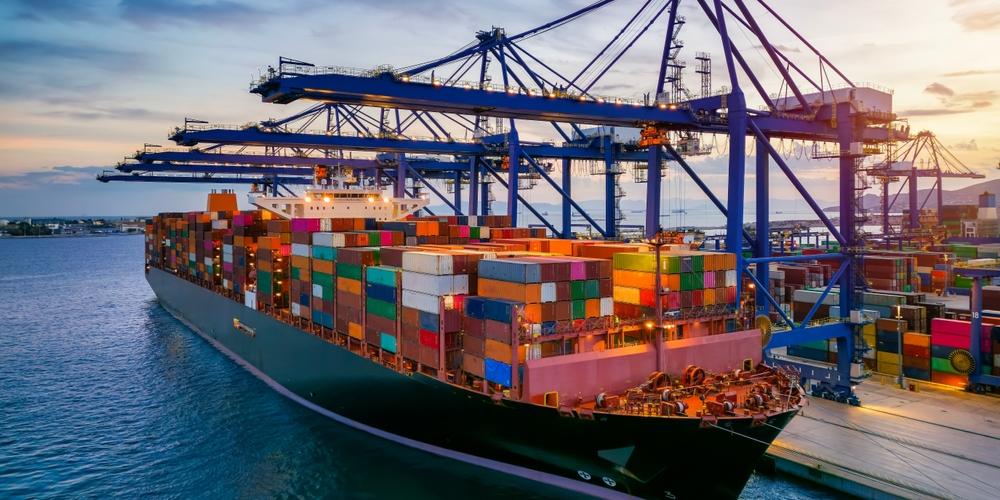
In partnership with Vlaanderen Circulair and the Flemish seaports Port of Antwerp-Bruges, North Sea Port and Port Oostende, the Vrije Universiteit Brussel (VUB) has launched the Circular Port Monitoring in Flanders research chair. Led by professor of sustainable strategy Elvira Haezendonck, the chair will coordinate research into the circular economy in Flemish seaports for two years. It will also focus on developing a monitoring system to measure and improve efforts relating to the circular economy. The intention is to make the ports both ambitious and future-proof.
The circular economy – an economic system in which products, materials and resources are valorised for as long as possible, and in which waste and emissions are minimalised – is receiving increasing global attention. Flemish seaports will benefit from facilitating this sustainable shift among port businesses, enabling them to become and remain future-proof.
“Rather than the traditional, linear approach of production, consumption and then disposal, a circular economy strives to close the circle, enabling products and materials to be reused, repaired, recycled and upgraded,” says academic coordinator Lynn Faut, affiliated with the VUB. “It’s important for Flanders’ seaport industry to take the lead on this for a number of reasons. It reduces impact on the environment, and creates economic opportunities because materials and resources are used more efficiently and new material streams are facilitated. It enhances the industry’s international position and inspires policymakers and sectors. Additionally, port businesses face growing obligations relating to sustainability reporting. Based on our research, they can gather knowledge on the circular economy, which allows them to make the right strategic and sustainable choices.”
As well as providing cutting-edge research, the chair will work on the development of a monitoring system to enable Flemish seaports to measure their efforts in the transition to a circular economy.

Elvira Haezendonck
“The aim of measuring circularity is nothing new,” says chair holder Elvira Haezendonck, professor of sustainable strategy affiliated with the Solvay Business School of the VUB. “A broader circular economy monitor was previously developed in Flanders by the CE Center, but it didn’t help the seaports move forward as leaders. On behalf of Vlaanderen Circulair, in 2022 I carried out a first exploratory study on monitoring circularity in ports. A science-based monitoring system will allow ports to communicate the fulfilment of their circular ambitions and measure socio-economic outcomes for relevant indicators. That’s useful not only for the partners of the research chair but also for other ports around the world. The Permanent International Commission for Navigation Congresses and International Association of Ports and Harbors have already shown an interest in sharing the results internationally for ports and port developers around the world.”
“This cooperation with a unique group of partners ensures important cross-fertilisation between practice, policy, scientific insight and research. In Flanders, we can – and we want to – remain a step ahead,” says Brigitte Mouligneau of Vlaanderen Circulair.
The three ports’ position as European frontrunners in circularity is shown not only by their ambitions and inspiring use cases, but also by their commitment to the research chair.
“Contributing to a more circular port economy has long been a spearhead for the Port of Antwerp-Bruges’ policy. Take the successful development of the Next Gen District on the Antwerp port platform. Support for this chair is aligned with that ambition. Furthermore, this partnership aligns with the cooperation model we advocate to meet the challenges of the future,” says Guy Janssens, vice-president Corporate Affairs at Port of Antwerp-Bruges
“The complete circular cluster, which has since taken shape, contributes to addressing climate issues and aligns with Port Oostende’s sustainability and corporate responsibility focus. This collaboration is essential for the future; companies, governments and knowledge and educational institutions achieve more together than they would with separate approaches,” says Dirk Declerck, CEO Port Oostende.
“At North Sea Port, we already have the raw materials of tomorrow, so we are already leading the circular revolution. In the port area, we stimulate the development of circular chains, in which materials and products are continually reused. We also connect all the actors involved and support them with our knowledge and experience. Cooperation in the framework of this chair is therefore hugely enriching and inspiring. It allows us to support companies in and around our port area to meet their ambitious climate targets and make the port climate neutral by 2050,” says Daan Schalck, CEO North Sea Port.
“As an urban engaged university, we are committed to helping seek solutions for the many sustainability challenges that our planet is facing, such as climate change, water shortages and air pollution. With the Circular Port Monitoring in Flanders research chair, we’re demonstrating with our partners our efforts to stimulate innovation and promote the transition to a circular economy in Flanders’ seaports. Close cooperation with industry and businesses is hugely valuable, because it enables the rapid spread of knowledge to the work floor and leads to concrete, practical applications with a real impact on society and the environment,” says Pieter Ballon, vice-rector Research at VUB.

Pieter Ballon